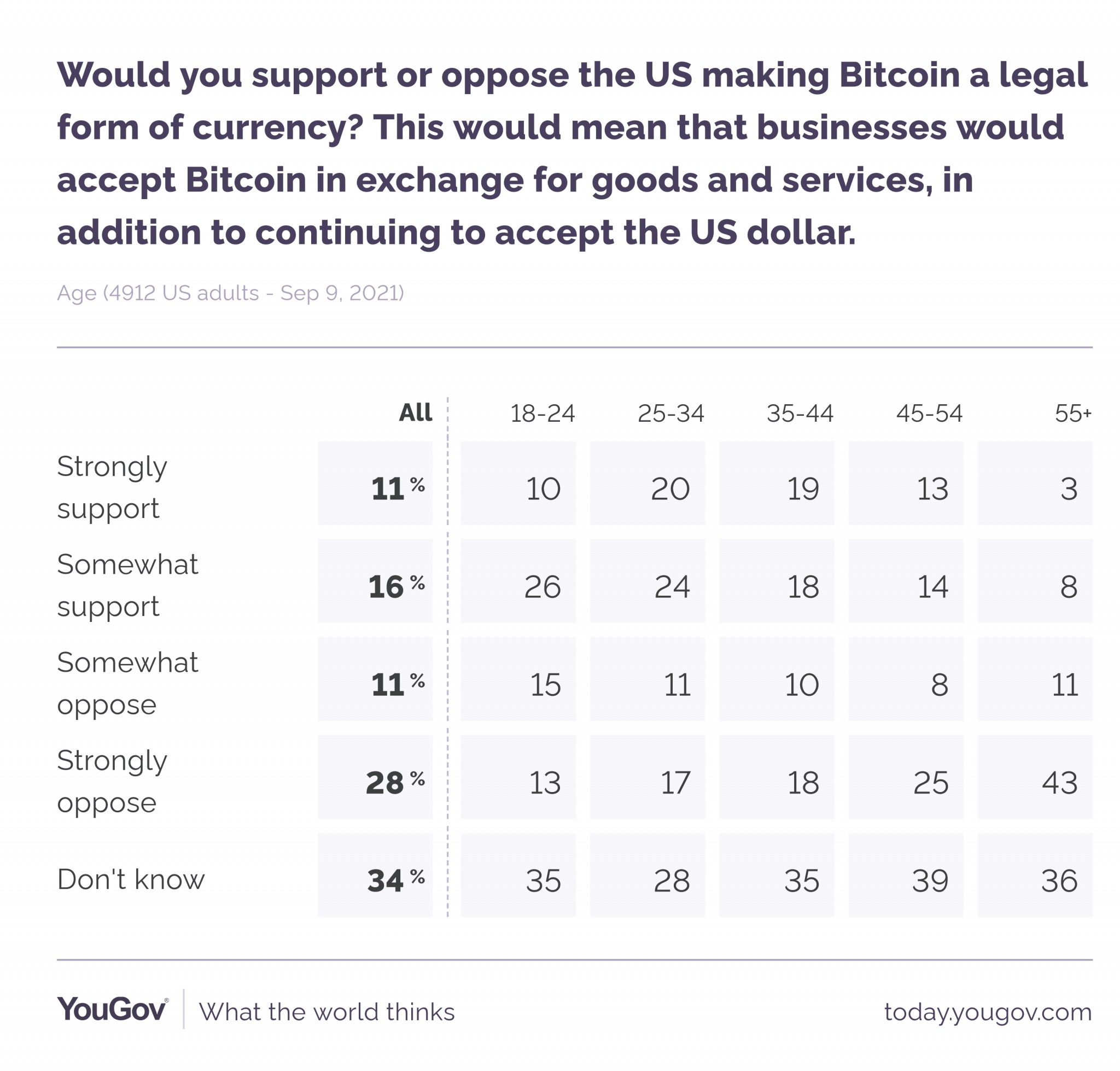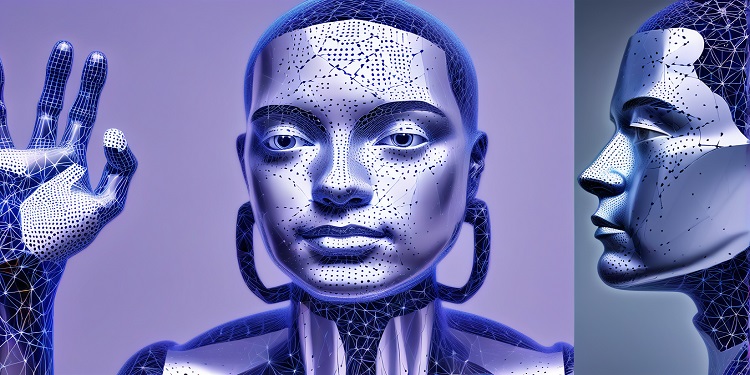 Do you think that Bitcoin should be recognized as currency in the US? According to a recent survey, 27% would approve such a measure. The survey, performed by the British market research company YouGov, revealed that Democrats, those at the top of the wage scale, and those under the age of 34 supported the move far more than their counterparts.
Do you think that Bitcoin should be recognized as currency in the US? According to a recent survey, 27% would approve such a measure. The survey, performed by the British market research company YouGov, revealed that Democrats, those at the top of the wage scale, and those under the age of 34 supported the move far more than their counterparts.
With the subsequent implementation of the Bitcoin Law, El Salvador has turned out to be the world’s first nation to endorse cryptocurrency as legal money. This has had a global impact, with a handful of countries, like Panama, moving quickly to introduce a comparable law and many other nations contemplating similar measures.
As per YouGov, a London-based polling firm, one-third of Americans would not be averse to a similar action. YouGov reported that 11% of Americans strongly favored the idea, while 16% ‘would kind of accept it’ in their survey of 4,912 Americans.
The survey also discovered certain characteristics that influenced whether or not an American citizen approved the move, including political leanings and average wealth. Democrats were discovered to be somewhat more favorable of the initiative than Republicans, at 29% vs. 26%, respectively.
Those making $80,000 or higher per year were also more receptive to the idea, with 21% supporting it. Those earning $40,000 or even less, on the contrary, were considerably less enthused about the change, with just 11% supporting it.
Younger participants were also more appreciative of the relocation than their previous generations. Those in the age group of 25-34 are nearly one-half as likely to favor the concept, while baby boomers (57-75) are nearly half as likely to reject it.
El Salvador’s decision — whether you agree with it or think it was too far a step – was essential to the adoption of Bitcoin. The Bitcoin community and doubters alike will be watching this development carefully. If it is successful, it will demonstrate that Bitcoin has the potential to transform into a cryptocurrency that can one day provide a substitute to government backed fiat currencies.
If it flops or encounters a stumbling block, it would very likely disgrace Bitcoin and eliminate whatever opportunity it really had of being a worldwide currency.

And, although 27% of Americans favor a “Bitcoin Law,” it is very improbable that the world’s largest economy would be the next to accept BTC as legal currency. To begin with, it has yet to officially define cryptos or reach an agreement on which regulatory agency has authority.
A smaller economy, most probably in the Caribbean or South America, will make the forthcoming step. Panama has already begun a legislative procedure that may result in the legalization of Bitcoin for payment purposes. Nonetheless, with exception of El Salvador’s contentious Article 7 of the Bitcoin Law, Panama will not force its residents to embrace Bitcoin until they wish to.








